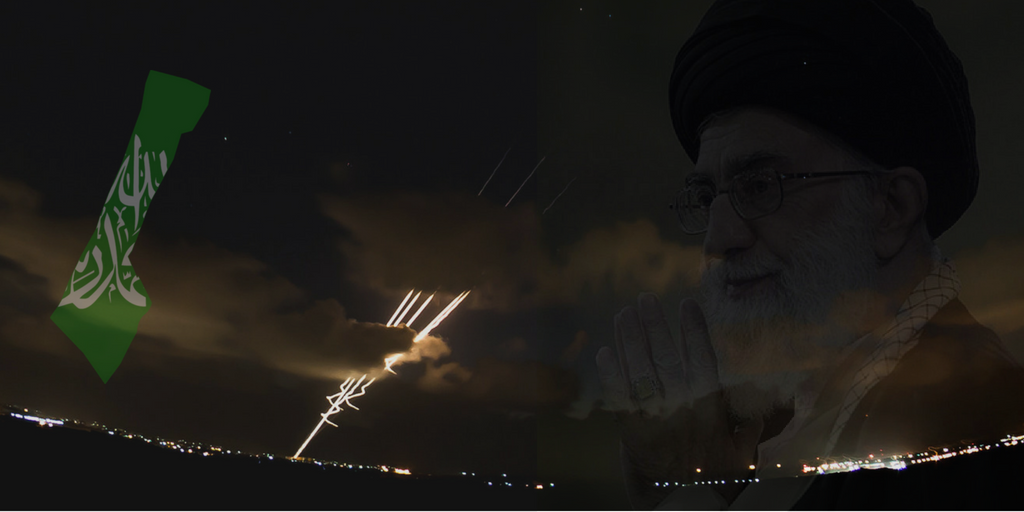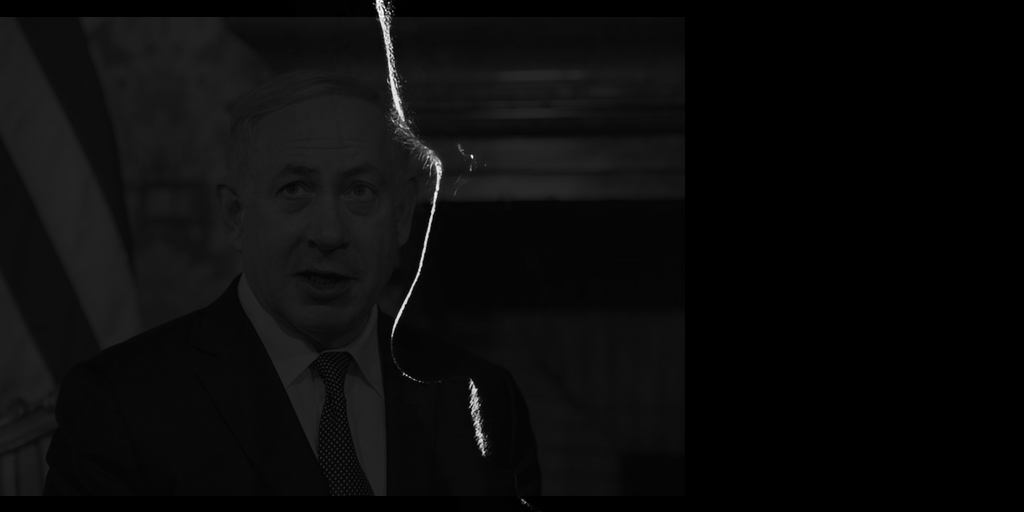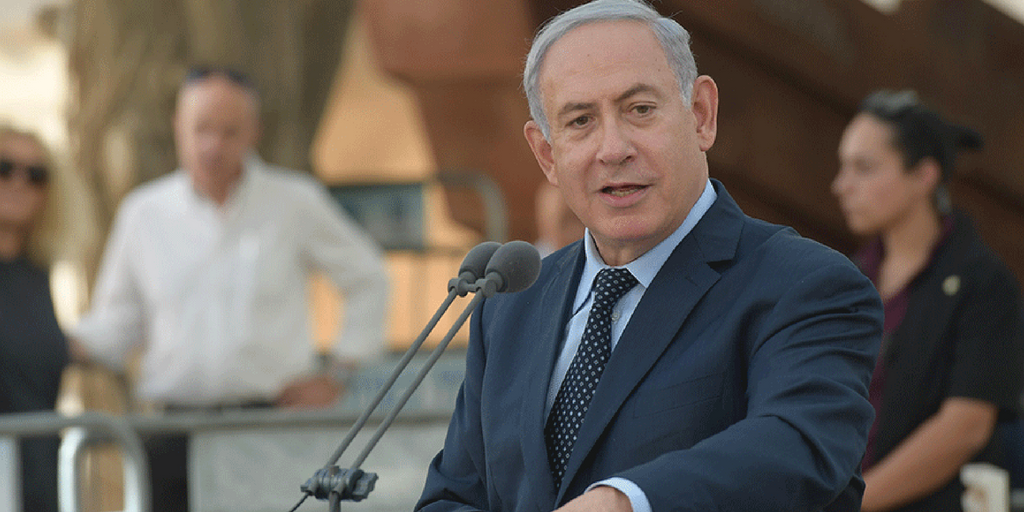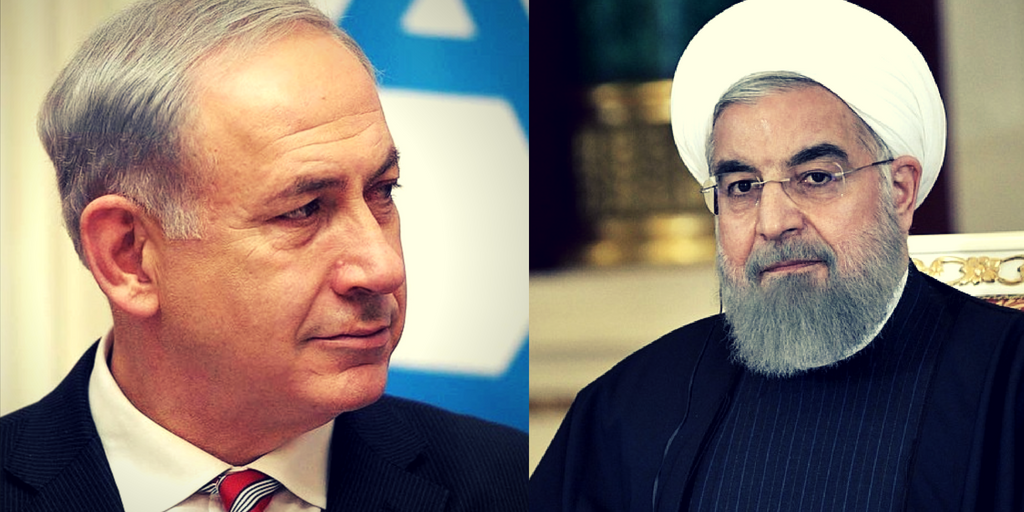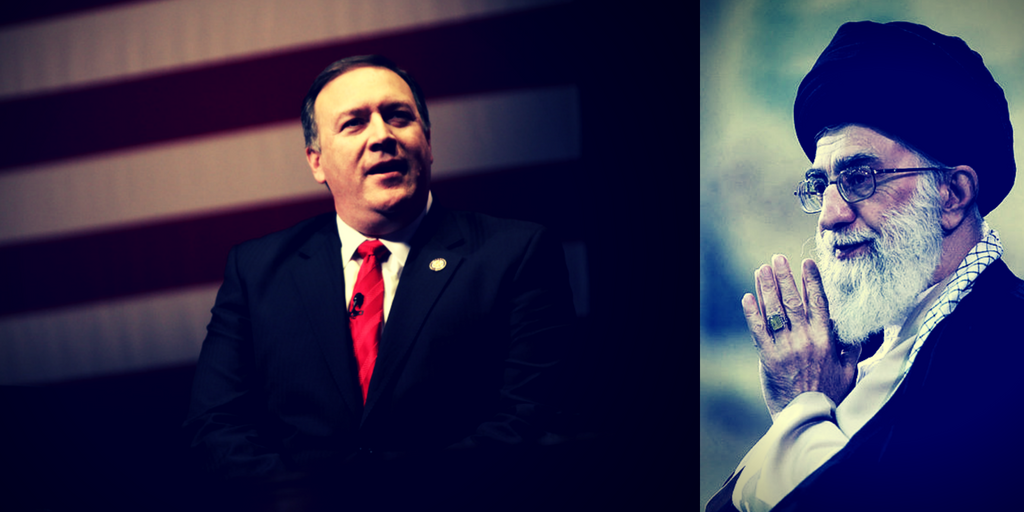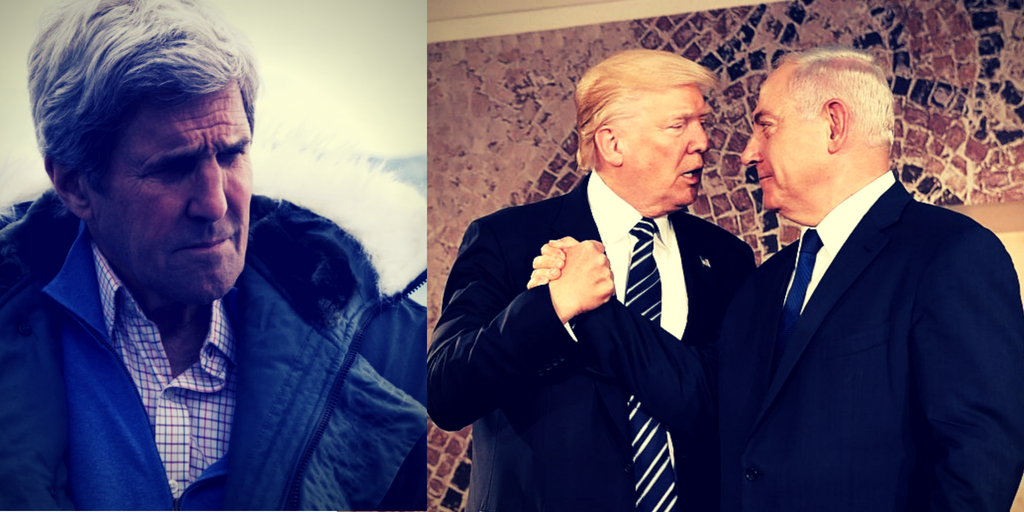Originally Published in the Jerusalem Post.
At the start of his cabinet meeting on Wednesday, President Donald Trump discussed his announcement Tuesday afternoon that he is removing the US from his predecessor Barack Obama’s nuclear deal with Iran and reinstating the nuclear sanctions that were suspended with the deal’s implementation in January 2016.
European and other international leaders responded angrily to Trump’s move. The EU’s foreign policy commissioner Federica Mogherini was downright indignant.
Apparently unaware that the US is a more important EU ally than Iran, Mogherini insisted, “The European Union is determined to preserve it. Together with the rest of the international community, we will preserve this nuclear deal.”
The liberal US media outlets were also aghast. Commentators joined the chorus of former Obama administration officials condemning Trump and insisting his move will isolate the US from the international community.
Trump brushed off his critics by noting, “You saw [Prime Minister] Benjamin Netanyahu get up yesterday and talk so favorably about what we did.”
In other words, as far as Trump is concerned, Israel’s support is just as valuable as Mogherini’s. He’s perfectly willing to suffice with Israeli support. Having Israel in his corner means that the US is not isolated.
From moving the US Embassy to Jerusalem, to walking away from the nuclear deal which guaranteed Iran’s eventual acquisition of nuclear weapons and financed its regional aggression and terrorism sponsorship, to unconditionally supporting Israel’s military operations against Iranian positions in Syria, Trump has demonstrated that he is the most pro-Israel president in US history. No other president comes close.
The difference between Trump and his predecessors is that Trump accepts Israel on its own terms. He doesn’t expect Israel to do anything to “earn” American support. So long as Israel is in America’s corner, he respects the Jewish state as America’s ally.
Trump has earned all the credit for transforming the US-Israel relationship into a full-blown strategic relationship. But it was another leader that prepared the groundwork for his actions.
That leader is Netanyahu.
For many Republicans, Netanyahu is the most important foreign leader of our times. In the ranks of their esteem he ranks a close second to Winston Churchill. Netanyahu’s high standing is all the more remarkable given that Israel has no British Empire behind it. In the vast scope of things, Israel is a tiny country with no coattails.
Republicans aren’t the only ones who admire him. World leaders from Russian President Vladimir Putin to Indian Prime Minister Narendra Modi to Chinese Premier Xi Jinping welcome him to their capitals like a visiting monarch. Sandwiched between two major Israeli air assaults on Iranian military assets in Syria Tuesday and Wednesday night, Netanyahu flew to Moscow. He stood next to Putin in Red Square as the Red Army Band played “Hativka” during the parade marking the 73rd anniversary of the Allied victory over Nazi Germany.

What explains his meteoric rise? How is it possible that an Israeli politician from the political Right, a man castigated for decades by the local and Western leftist elites as a fanatic and an extremist, is so revered today?
To understand Netanyahu’s success, a comparison with the late Shimon Peres is in order. Until his death, the same elites who revile Netanyahu revered Peres as the greatest Israeli statesman of all time.
Peres had a clear formula for statesmanship. He identified the interests of key actors – first and foremost, the Europeans – and he adopted them.
Consider his central foreign policy initiative, the Oslo peace process with the PLO.
Since the 1970s, the Europeans sought to legitimize the PLO – at Israel’s expense. In 1993, then-foreign minister Peres turned their goal into an ideology of peace and adopted it as his own.
On Monday, Labor MK Eitan Cabel said that if the late Yitzhak Rabin had known the toll the Oslo process would take on Israel, he never would have adopted it.
In his words, “From my dealings with [Rabin], in my view, if he had known the price the State of Israel would pay for the Oslo agreements, he never would have agreed to them.”
Peres, of course, was different. As the Israeli casualties of his peace process mounted from the tens to the hundreds to the thousands, and as Israel’s international position sunk ever lower, Peres became more dogmatic in its defense.
For his efforts, Peres was personally glorified by the A-list crew of European and American elites. They came to his extravagant birthday parties and had their photos shot embracing him. But none of his triumphs were shared with the country.
Netanyahu, has a different approach to diplomacy. Netanyahu identifies Israel’s national interests. Then he scans the international community for actors with aligned interests. He uses his considerable power of persuasion to convince those actors to achieve common goals.
The discrepancy between the two men’s approaches is nowhere more apparent than in their divergent moves to develop ties with the Arab world.
Peres viewed the Arab world from a European perspective. The EU views the Arab world as a monolithic presence moved only by Israel’s willingness to give Jerusalem to the PLO. So long as Israel refuses to give up Jerusalem, the Arabs will reject the Jewish state. Once Israel has conceded its eternal capital – and Judea and Samaria along with Gaza – the Arabs will be placated in one fell swoop and immediately embrace Israel as a neighbor and friend.
This view, which Peres gave voice to in his book The New Middle East, bears no relationship whatsoever to the realities of the Middle East.
Consequently, rather than embrace his vision, the Arabs viewed it as a Jewish conspiracy to take over the Arab world.
In stark contrast, Netanyahu has built his regional strategy on the real Middle East. During the Obama years, Netanyahu realized that Obama’s policies toward Iran and the Muslim Brotherhood imperiled Sunni Arab states no less, and perhaps even more, than they imperiled Israel.
Netanyahu developed relations with Egypt, Saudi Arabia and the UAE on the basis of these shared concerns and shared interests in diminishing the deleterious consequences of Obama’s policies. Although Netanyahu’s moves are unlikely to generate extravagant signing ceremonies with doves and balloons, they did bring about a situation where the Saudis, Egyptians and the UAE sided with Israel against Hamas, Qatar and Turkey during Operation Protective Edge in 2014.
That united front prevented Obama from coercing Israel into accepting Hamas’s cease-fire terms in the war.
So too, the relationships Netanyahu built formed the basis of a united Israeli-Arab front opposing Obama’s deal with Iran.
Now with Trump in the White House, Netanyahu’s regional policies have fomented a strategic transformation of the US’s system of alliances in the Middle East. Whereas in 1990, then-president George H.W. Bush built a coalition of Arab states against Iraq at Israel’s expense, in 2017, Trump reframed the US’s alliance structure to one based on the common Israeli-Sunni front against Iran and the Muslim Brotherhood.
Throughout Obama’s eight years in office, politicians from the Left accused Netanyahu of destroying Israel’s alliance with the US. Yesh Atid leader Yair Lapid, for instance, chastised Netanyahu in 2015 insisting, “Your understanding of America is obsolete and irrelevant and it is causing damage to the State of Israel.”
Netanyahu did understand America though. He understood the Obama administration was incurably hostile to Israel and that Obama viewed Israel as the main obstacle to achieving his goals in the Middle East. Netanyahu understood that under those circumstances, he had to find partners inside the US – in Congress and among the general public – to lessen the damage Obama was causing Israel.
Netanyahu’s approach to the US during the Obama years, and indeed, during the Clinton administration as well, was to recognize that the administration, while a key actor, is just one actor in a much wider American society, which is by and large deeply supportive of Israel. This insight informed Netanyahu’s decision to bring his opposition to Obama’s nuclear diplomacy with Tehran to the American people directly, through his address before a joint session of Congress in March 2015.
Netanyahu was reviled and attacked brutally by the Israeli and American Left for his move. Both groups insisted that he was undermining and even destroying US ties with Israel.
But the truth was that to a significant degree, Netanyahu’s speech in March 2015 safeguarded and protected the US alliance with Israel.
Netanyahu recognized that the White House’s propaganda campaign on behalf of Obama’s nuclear deal was even more dangerous to Israel than the deal itself. Obama’s campaign centered on delegitimizing all of the deal’s critics, by castigating them as Israeli agents and warmongers. If Obama’s efforts had succeeded, US support for Israel would have crashed, as that support would have been effectively rendered toxic and somehow treasonous.
Netanyahu’s address to Congress stopped Obama’s efforts in their tracks. He preserved the political legitimacy of opposition to the Iran deal and of support for Israel. His speech presented a clear case for how the nuclear deal harmed America’s national interests and how support for Israel advanced America’s national interest. Although Netanyahu’s speech represented the most significant substantive challenge Obama’s foreign policy ever suffered, Netanyahu offered nothing but praise for Obama in his address. In so doing, Netanyahu insulated himself and Israel from charges that he was hostile to Obama or in any way disrespectful of the presidency.
By coming to Washington and preserving the legitimacy of Obama’s opponents, Netanyahu blocked Obama from securing the support of either a majority of US lawmakers or a majority of the US public for his nuclear accord. His speech was the foundation of the Republican Party’s rejection of Obama’s deal. It created the political space for Democratic lawmakers to oppose their president’s most important foreign policy initiative.
If Netanyahu had not deliver his speech, opposition to the nuclear deal might not have become the consensus view of the Republican presidential candidates in the 2016 primaries. If Netanyahu not ensured the continued legitimacy of opponents of the nuclear deal, Trump might not have promised to abandon it.
Trump is the only person who decides his policies and so he has earned the admiration of the people of Israel, who are rightly moved by his extraordinary, unprecedented acts of friendship and support since entering office. But the man who set the conditions that afforded Trump the opportunity to transform the US-Israel relationship into a fullboard alliance is Netanyahu.
Israel is now reaping the rewards of Netanyahu’s visionary statesmanship. For his efforts, over the course of 30 years, Netanyahu has roundly earned the ever growing acknowledgment at home and abroad that he is the greatest statesman in Israel’s history.


